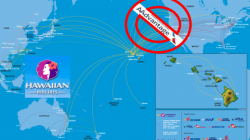Travel hacking exists in a very real grey area between legal (and reasonably ethical) attempts to save money and those who cross the line into fraud. I generally consider it to be a hobby that focuses on clever ways to make a complex system work to your advantage, check over here to learn more about fraud and charges, as well it’s defense and lawyers.
Airline and hotel loyalty programs assume a certain amount of poor quality redemptions and “breakage” when miles go unredeemed. If you step in and start making every award pay off like gangbusters, that’s not illegal as long as you play by the rules. But it’s still “hacking” in the sense that you’re an outlier who gets more from the system than anticipated. Many intelligent and successful people enjoy this hobby for the thrill of the deal even if they don’t necessarily need the money. I know doctors, professors, lawyers, politicians, and finance professionals who read this and other blogs.
But there’s always that temptation, as I said, to cross the line into fraud. If caught, there can be consequences beyond getting banned from a particular airline. Learn how solicitors Liverpool help their clients deal with legal issues.
The Guardian and other news outlets are reporting that Jonathan Burrows, a former managing director at BlackRock Asset Management, has been banned for life from working in the UK’s financial industry. His offense was finding a way to save money on train fare during his morning commute, and though he managed to keep it secret for a while by settling out of court, recent publicity brought his case to the attention of the Financial Conduct Authority.
His “travel hack” consisted of boarding a train at a rural station without fare gates without buying a ticket, transferring to the London Underground, and then tapping his prepaid Oyster fare card upon exiting. Because the Underground didn’t know his origin, it would only charge him the maximum daily fare of £7.20 rather than the full £21.50.
While I’m not trying to defend Mr. Burrow’s actions, I can see some parallels between what he did and various tricks like hidden city ticketing or fuel dumping. No one asked him for his ticket on the train. No one asked him to pay the fare when he transferred to the Underground. And he paid whatever the station requested when he finally tapped his Oyster upon exiting.
Many travel hacks tend to be sins of omission. If you find a third strike that you can combine with a base fare and eliminate the fuel surcharge, it’s generally considered “okay” by some who put the onus on the airline or travel agency to charge the correct price. I’m not familiar with the train network Mr. Burrows was using, but I think it’s safe to assume his sin was more severe because it probably relies on an honor system in which customers buy tickets but don’t always present them to a conductor. Airlines don’t use honor systems, which is why some people shift the responsibility for accurate ticketing back to them.
Anyway, without trying to start a grand debate on the ethics of travel hacking, the penalty of a lifetime ban that has effectively ended Mr. Burrows’ 20-year career in finance is particularly stark. More and more people expect professionals to behave well in their private lives because that might also reflect their public performance. An affair doesn’t necessarily prevent a politician from representing his voters’ interests, but if he can’t be faithful to his wife, what makes you think he’ll be faithful to constituents? A lawyer’s legal gambling habit doesn’t necessarily prevent him from successfully representing his clients’ interests, but if he is saddled by debt what makes you think he won’t be vulnerable to bribery or coercion?
I’m curious to know if anyone else has stopped using certain tricks or avoided them in the first place because you were worried about the impact on your career if they ever came to light.

